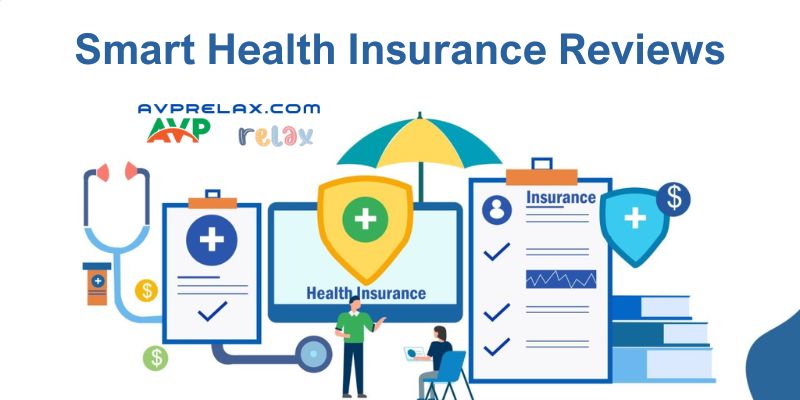Are you one of the millions of Americans without health insurance? If so, you may face penalties when tax season arrives. The Affordable Care Act (ACA) requires individuals to have health insurance or pay a fine. This article will explain the consequences of not having health insurance and the penalties you may face.
The Problem of Not Having Health Insurance
Without health insurance, you risk significant financial burdens that can be devastating to your finances. Even minor medical procedures or doctor visits can rack up thousands of dollars in bills, leaving you with substantial debt. In addition to financial concerns, not having health insurance can also negatively impact your health. Lacking insurance can result in avoiding necessary medical care and preventative treatment, leading to more severe health issues.
Overview of Penalties for Not Having Health Insurance
The ACA requires individuals to have health insurance or pay a penalty. This penalty is also known as the “individual mandate” and is based on your income and family size. In 2021, the penalty is the greater of $695 per adult and $347.50 per child or 2.5% of your taxable income. The maximum penalty is limited to the national average cost of a bronze-level health plan.
In the next section, we will dive into the penalties for not having health insurance in more detail. Stay tuned to learn how you can avoid these penalties and protect your financial and physical well-being.
What are the Penalties for Not Having Health Insurance?
Penalties Under the Affordable Care Act
The individual mandate of the ACA requires individuals to have health insurance or face penalties. The penalties are based on your income and family size and calculated according to a formula. If you do not have health insurance and do not qualify for an exemption, you will face a penalty. The penalty is assessed on your tax return for the year you did not have coverage.
The penalty for not having health insurance has changed over the years. In 2019, the penalty was eliminated, but it was reinstated in 2020. The penalty for 2021 is the greater of $695 per adult and $347.50 per child or 2.5% of your taxable income. The maximum penalty is limited to the national average cost of a bronze-level health plan.
Coverage Exemptions
Not everyone is required to have health insurance under the ACA. Some individuals may be exempt from the individual mandate penalty. Exemptions include:
- Financial hardships
- Religious objections
- Native Americans
- Short coverage gaps
- Incarceration
- Non-citizens
If you qualify for an exemption, you will not face a penalty for not having health insurance. However, it is essential to note that even if you are exempt, you may still want to consider obtaining health insurance to protect your physical and financial well-being.
In the next section, we will discuss how penalties for not having health insurance are calculated.
How Are Penalties Calculated?
If you don’t have health insurance, you may be wondering how the penalty is calculated. The individual mandate penalty is based on two factors: your income and family size. Here’s how it works:
Explanation of the Individual Mandate Penalty Calculation
The penalty is calculated based on the number of months you were uninsured during the year. For example, if you were uninsured for six months, you would owe half of the penalty amount. The penalty is pro-rated, so the longer you go without insurance, the higher the penalty.
To calculate the penalty, the government takes the greater of two amounts: a flat fee or a percentage of your income. For 2021, the flat fee is $695 per adult and $347.50 per child, with a maximum of $2,085 per family. The percentage of income penalty is 2.5% of your taxable income, with a maximum penalty of the national average cost of a bronze-level health plan.
Comparison of the Penalty vs. Cost of Insurance
While the penalty may seem steep, it’s important to compare it to the cost of health insurance. In many cases, insurance can be more affordable than the penalty. Depending on your income, you may qualify for financial assistance to help pay for your insurance premiums.
Keep in mind that health insurance provides more than just financial protection. It also offers access to preventative care and necessary medical treatment, which can save you money in the long run by preventing costly medical bills.
In the next section, we’ll discuss how you can enroll in health insurance to avoid penalties and protect your health and finances.
How to Enroll in Health Insurance to Avoid Penalties
If you don’t have health insurance, it’s important to enroll as soon as possible to avoid penalties. The Health Insurance Marketplace is a government-run website where you can compare health insurance plans, enroll in coverage, and determine if you’re eligible for financial assistance.
Overview of the Health Insurance Marketplace
The Health Insurance Marketplace is an online platform that offers affordable health insurance plans to eligible individuals and families. The marketplace provides a variety of insurance options, including private insurance plans and Medicaid coverage. Depending on your income, you may qualify for subsidies that can reduce your monthly premiums and out-of-pocket expenses.
Explanation of the Enrollment Process and Deadlines
During the open enrollment period, you can enroll in health insurance coverage through the Health Insurance Marketplace. The open enrollment period typically runs from November through December but may vary depending on your state. Outside of the open enrollment period, you may still be able to enroll in coverage if you experience a qualifying life event, such as getting married, having a child, or losing other health coverage.
Options for Low-Cost or Free Insurance
If you can’t afford health insurance, you may still have options for low-cost or free coverage. Medicaid is a government-run program that provides health insurance to individuals and families with low incomes. Depending on your state’s Medicaid eligibility requirements, you may qualify for free or low-cost coverage. Additionally, some nonprofit organizations or community health centers offer free or low-cost health care services to those in need.
Enrolling in health insurance can be a complex process, but it’s crucial to protect your health and avoid costly penalties. By using the Health Insurance Marketplace and exploring your options for low-cost or free coverage, you can find a plan that meets your needs and budget.
Consequences of Not Paying the Penalty
Explanation of the Consequences
If you choose not to pay the penalty for not having health insurance, you could face various consequences. Firstly, the Internal Revenue Service (IRS) may withhold your tax refund until the penalty is paid. Additionally, the IRS can place a lien on your property or garnish your wages to recover the amount owed. If you continue to refuse payment, the IRS can take legal action against you, leading to further financial and legal complications.
Impact on Credit Score
Another significant consequence of not paying the penalty is the impact it can have on your credit score. The IRS can report unpaid penalties to credit bureaus, leading to a drop in your credit score. A lower credit score can make it more challenging to obtain loans, credit cards, and even housing.
Protecting Yourself from Penalties
To avoid the penalties for not having health insurance, it is essential to enroll in a health insurance plan. The ACA’s individual mandate requires individuals to have health insurance or pay a penalty, but the ACA also offers exemptions for those who cannot afford insurance or face certain hardships. If you are unsure whether you qualify for an exemption, consult a tax professional or visit the healthcare.gov website.
Conclusion
Not paying the penalty for not having health insurance can have severe consequences on your finances and credit score. It is crucial to enroll in a health insurance plan to avoid these penalties and protect your financial and physical well-being.
In Conclusion
In conclusion, not having health insurance can lead to significant financial and health consequences. The Affordable Care Act requires individuals to have health insurance or face penalties, which can be costly. However, there are options available to help you obtain affordable health insurance and avoid penalties.
To avoid penalties, you can enroll in health insurance through the marketplace. The enrollment process is straightforward and offers options for low-cost or free insurance. Additionally, there are coverage exemptions available for those who cannot afford insurance or have certain life circumstances.
By enrolling in health insurance, you can protect your financial and physical well-being. You can avoid costly medical bills and receive essential preventative care. Remember, the penalty for not having health insurance is a small price to pay compared to the potential financial and health consequences.
Thank you for reading this article on the penalty for no health insurance. We hope you found this information helpful and informative. Be sure to enroll in health insurance to protect yourself and your family’s financial and physical health.






